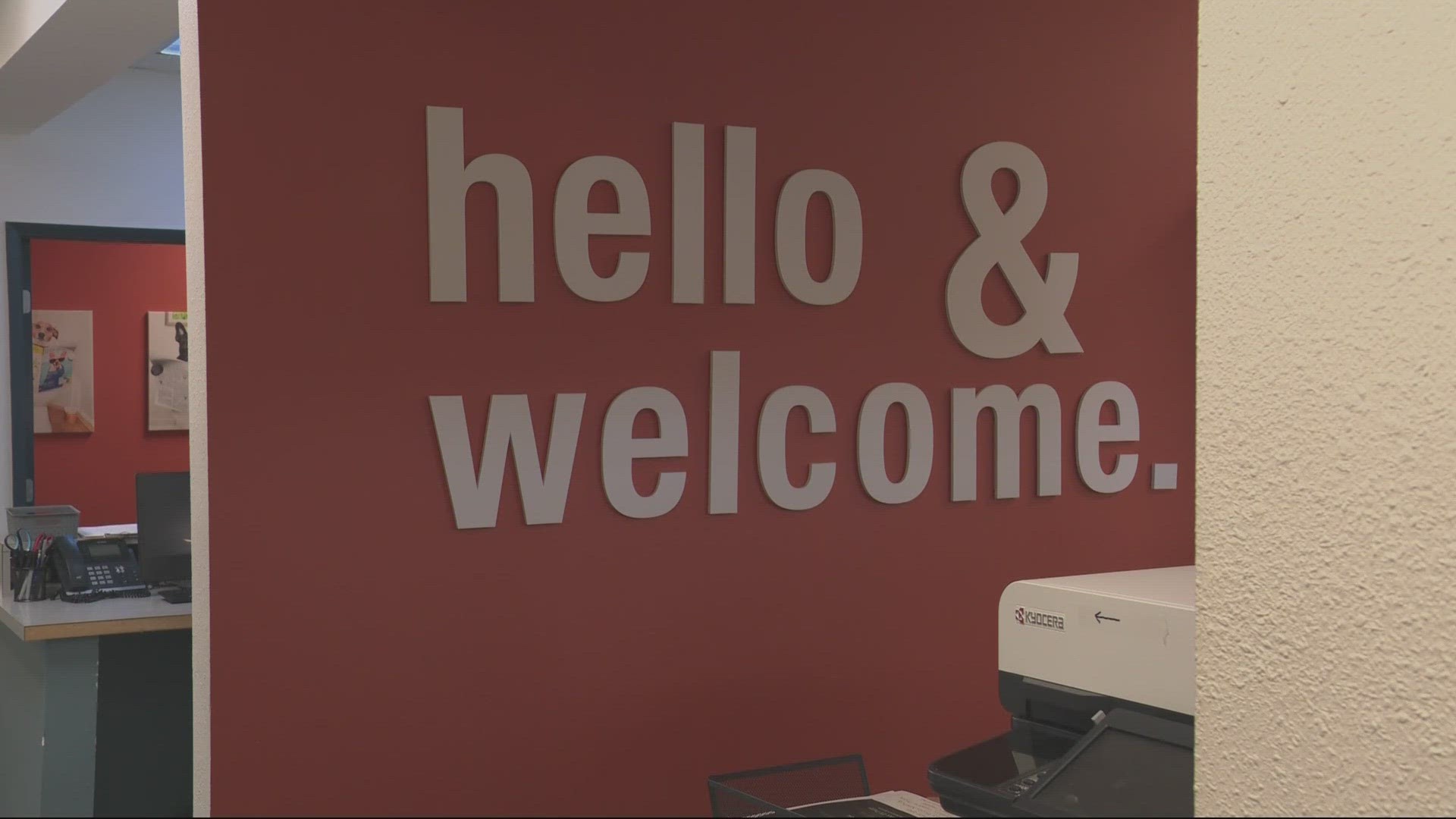NEWBERG, Ore. — An addiction recovery center in Yamhill County is marking one year since it opened.
Tucked off North Villa Road in Newberg is an open door for those struggling with addiction. Recovery Works NW runs the outpatient clinic offering everything from mental health counseling, peer support and overdose control medicine. They aim to be a “one-stop-shop” for services, said Joe Bazeghi, the director of engagement.
It cost just over $1 million to open. The group could afford it all, thanks to Measure 110, the landmark voter-approved initiative that decriminalized public-use of hard drugs and put cannabis tax dollars toward opening centers like this one.
It’s a partnership that can’t be missed there, as the shop next door is a marijuana dispensary.
“Measure 110 (is) providing us with an opportunity to establish a physical presence here in Newberg serving Yamhill County residents,” said Bazeghi.
More than 450 people have been helped by the clinic in the past year, including Justin Bye.
“I started using fentanyl about two years ago, got heavily into it, became homeless, lost my job, lost my family,” recalled patient Bye. “I get the suboxone shot. I come here once a month and get a shot in my stomach … It’s helped me immensely. I don’t think I could have done it without them.”
“They welcomed me back every time even if I failed previously,” added his partner, Nicole Gainer, who was also homeless in Newberg and addicted to fentanyl.
“They’re just very, very supportive; a lot of them have been through it themselves and that helps a lot,” Bye said about the Recovery Works NW staff, such as Robbie Hoffman, who was once addicted to opioids and is now more than seven years clean.
“I learned from them back when I was a patient in what I needed, and now, I’m able to reverse that and give that to the people,” Hoffman said.
It’s a positive side to Measure 110. Meanwhile, the state is talking about reversing parts of that law and re-criminalizing possession of hard drugs like fentanyl. This comes after an outcry from cities across the state, arguing that de-criminalization only worsened things.
It’s a move those at Recovery Works NW argue isn’t a long-term solution. They said it criminalizes addiction and forces people into recovery when they aren’t ready, complicating the system and leaving people with a higher chance of relapsing, overdosing and dying. Recovery Works NW wants to see more of a focus on opening recovery centers like the one in Newberg.

